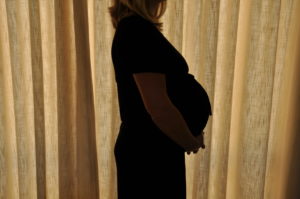Ssshhhhh, we don’t talk about postnatal depression, or at least that’s what the world of motherhood would have you believe. Well stuff that, I suffered and maybe if there were more real-life mom blogs out there telling their truth I would have realised sooner. But there wasn’t and one of the reasons I started sharing my blog with you all is to make the subject of postnatal depression less taboo. So I thought I’d write a post, in laymans terms, about PND and (some) of the different ways it can present itself.
I’d like to start by stating that I am NOT a medical doctor. All that I have learnt about PND is either through my research or via my psychologist & psychiatrist. The content of this post is not intended to be a substitute for professional medical advice, diagnosis, or treatment. Always seek the advice of your physician or other qualified health provider with any questions you may have regarding a medical condition.
Ok now that we’ve gotten that out the way, let’s talk postnatal depression. I had (my official diagnosis) severe postnatal depression without psychotic episodes. I was an over-functioning depressive. For more details on my story you can read this post, so I’m not going to delve any further into my diagnosis.
PND (also called postpartum depression or PPD) is actually way more common than everyone would have you believe. A recent study (July 2018) conducted by the World Health Organisation showed that, in South Africa, more than 40% of woman suffer from the condition. That is in stark contrast to first world countries where only 10% – 13% of woman suffer. That’s MASSIVE!
PND comes in so many ‘forms’ and this is why it is so hard to self-diagnose. While I was pregnant I Googled the symptoms so that I could be forewarned and they include, but are not limited to, feeling overwhelmed, excessive crying, irritability, not bonding with your baby, intense irritability and anger, panic attacks, thoughts of self-harm or harming your baby. Depression is also, generally characterised by someone who’s overwhelmingly sad, doesn’t want to get out of bed each day, avoids social interactions, excessive weight loss or gain, feelings of hopelessness and more.
The problem comes in when, like me, you are an over functioning depressive, people don’t think you’re classically depressed, they often don’t see the signs (and neither do you). You seem relatively happy most of the time, you get out of bed each day, you do all the things ‘expected’ of you but life brings you little joy.
Then you get those moms who are just a little down; personally I think everyone, at some stage or another has baby blues. Your life has just been turned on its head! You are massively sleep deprived, you have no manual on how to be a mom and the world puts immense pressure on us to ‘bounce back’ after the birth of a baby and it rarely happens.
There are also those moms that don’t bond with their babies and that is usually a dead giveaway that someone is suffering PND and everyone reacts really quickly.
And the one that scares me the most is the moms who sadly end up with psychotic episodes. That must be frightening for everyone involved. Once again, possibly a bit easier to pick up because the behaviour is so out of character.
What I’m getting at here is that PND doesn’t look the same or feel the same for any 2 people. I have met many moms on my journey who have suffered in different ways to me. But we also don’t need to sit and suffer silently for days, weeks and certainly not months on end, because “we can’t be depressed” because we aren’t showing ‘classic’ signs or we believe that the first year is really tough and this is just how it is for everyone.
My recommendation is (and I’ve said this to so many people before) is to make an appointment with a psychologist who deals with postnatal depression about 1 months after baby is born and every month thereafter for the first 4 – 6 months. They will pick up very quickly if there is a problem and be able to help. Don’t see your gynae and expect them to diagnose you correctly; they are not trained to assess your mental health. (You wouldn’t see your gynae for a throat infection would you?) I said this to my gynae when he asked me how he could handle similar situations with future moms and he totally agrees with me – he is a truly amazing man!
You’ve just paid a vast amount of money to have the baby, spend a little to make sure you are ok because at the end of the day you are totally worth it and motherhood doesn’t need to feel awful and scary and something you want to run away from.
So that’s my 2 cents worth; I hope that this will help someone. If not you, then share it with a friend who’s a new mom or just share it far and wide so more moms can read real-life stories.
Much love xxx

